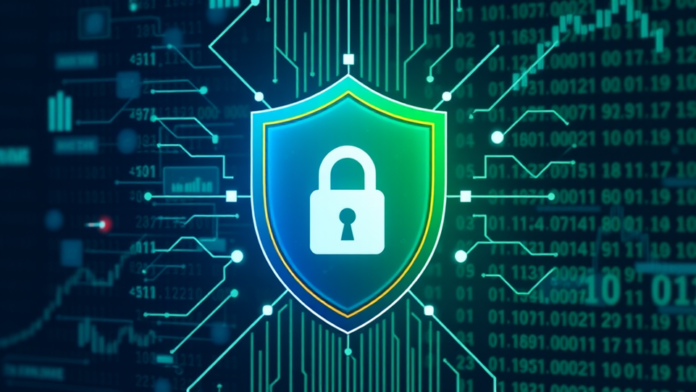Introduction to Cybersecurity in Finance
Importance of Cybersecurity in the Financial Sector
Cybersecurity is crucial inwards the financial sector due to the sensitive nature of financial data. Institutions face constant threats from cybercriminals seeking to exploit vulnerabilities. Effective cybersecurity measures protect assets and maintain customer trust.
Moreover, regulatory compliance is essential for financial organizations. Non-compliance can lead to severe penalties. Protecting data is not just a legal obligation; it’s a moral one.
Investkng in robust cybersecurity frameworks is vital. This includes regular audits and employee training. Security is everyone’s responsibility.
Overview of Common Cyber Threats
Cyber threats in finance include phishing, ransomware, and data breaches. These attacks can compromise sensitive information. He must remain vigilant against these risks. Awareness is key to prevention. Additionally, social engineering tactics are increasingly sophisticated. Understanding these tactics is essential for protection.
Types of Cyber Threats Facing Financial Institutions
Phishing Attacks and Social Engineering
Phishing attacks often involve deceptive emails. These emails trick individuals into revealing sensitive information. He should verify the sender’s identity. Social engineering exploits human psychology. Attackers manipulate emotions to gain trust. Awareness is crucial for prevention.
Ransomware and Malware Risks
Ransomware encrypts critical financial data, demanding payment for decryption. This can halt operations and lead to significant losses. He must implement robust backup solutions. Malware can infiltrate systems, stealing sensitive information. Such breaches can damage reputations and erode client trust. Prevention is essential for safeguarding assets.
Regulatory Framework and Compliance
Key Regulations Impacting Cybersecurity
Key regulations such as GDPR and PCI DSS mandate stringent cybersecurity measures. Compliance with these frameworks is essential for financial institutions. He must ensure data protection and privacy. Non-compliance can result in hefty fines. Understanding these regulations is crucial for risk management. Awareness leads to better security practices.
Importance of Compliance for Financial Institutions
Compliance is vital for financial institutions to mitigate risks. It ensures adherence to laws and regulations. He must prioritize regulatory frameworks. Protecting client data is a legal obligation. Trust is essential in finance.
Best Practices for Cybersecurity in Finance
Implementing Strong Access Controls
Implementing strong access controls is essential for safeguarding sensitive financial data. He must restrict access based on roles and responsibilities. This minimizes the risk of unauthorized access. Regularly updating passwords is also crucial. Weak passwords can lead to breaches. Training employees on access protocols enhances security awareness. Security is a shared responsibility.
Regular Security Audits and Assessments
Regular security audits and assessments are critical for identifying vulnerabilities. These evaluations help ensure compliance with regulations. He should conduct audits at least annually. This proactive approach mitigates potential risks. Additionally, assessments provide insights into security effectiveness. Awareness leads to better protection.
Role of Technology in Enhancing Cybersecurity
Utilizing AI and Machine Learning
Utilizing AI and machine learning enhances cybersecurity measures significantly. These technologies analyze vast amounts of data quickly. He must leverage these tools for threat detection. Predictive analytics can identify potential vulnerabilities. This proactive approach improves response times. Security is a continuous process.
Blockchain Technology for Secure Transactions
Blockchain technology provides a decentralized ledger for secure transactions. This reduces the risk of fraud and enhances transparency. He must consider its potential for financial applications. Each transaction is encrypted and immutable. This ensures data integrity and trust. Security is built into the system.
Incident Response and Recovery Strategies
Developing an Incident Response Plan
Developing an incident response plan is essential for effective cybersecurity management. This plan outlines procedures for identifying and addressing security breaches. He must ensure all team members are trained. Timely response can minimize damage and recovery time. Regularly updating the plan is crucial. Adaptation keeps it relevant and effective.
Post-Incident Recovery and Lessons Learned
Post-incident recovery is critical for restoring operations and data integrity. He must analyze the incident to identify weaknesses. Documenting lessons learned enhances futurity preparedness. This process informs updates to security protocols. Continuous improvement is essential for resilience. Awareness leads to stronger defenses.
Employee Training and Awareness Programs
Importance of Cybersecurity Training
Cybersecurity training is essential for mitigating risks. Employees must understand potential threats and vulnerabilities. He should implement regular training sessions. Knowledgeable staff can identify suspicious activities. This proactive approach reduces the likelihood of breaches. Awareness fosters a culture of security.
Creating a Culture of Security Awareness
Creating a culture of security awareness is vital for financial institutions. Employees must recognize their role in protecting sensitive data. He should encoudage open communication about security concerns. Regular training sessions reinforce best practices. This proactive approach minimizes risks and enhances compliance. Security awareness is a shared commitment.
Future Trends in Cybersecurity for Finance
Emerging Threats and Challenges
Emerging threats in cybersecurity pose significant challenges for financial institutions. New attack vectors, such as deepfakes and IoT vulnerabilities, require vigilance. He must stay informed about these developments. Adapting security measures is essential for protection. Continuous monitoring can mitigate potential risks. Awareness is crucial for effective defense.
Innovative Solutions on the Horizon
Innovative solutions are emerging in cybersecurity for finance. Technologies like quantum encryption promise enhanced security. He must explore these advancements carefully. Automation can streamline threat detection processes. This increases efficiency and reduces response times. Staying ahead is crucial for protection. Security is an ongoing challenge.

